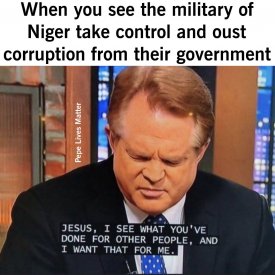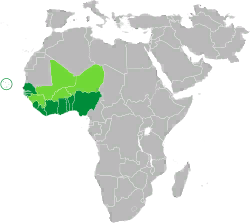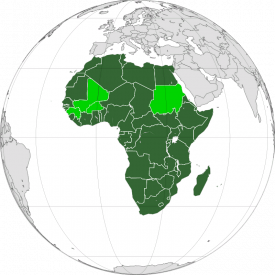Installeer de app
How to install the app on iOS
Follow along with the video below to see how to install our site as a web app on your home screen.
Opmerking: This feature may not be available in some browsers.
Je gebruikt een verouderde webbrowser. Het kan mogelijk deze of andere websites niet correct weergeven.
Het is raadzaam om je webbrowser te upgraden of een browser zoals Microsoft Edge of Google Chrome te gebruiken.
Het is raadzaam om je webbrowser te upgraden of een browser zoals Microsoft Edge of Google Chrome te gebruiken.
Afrika
- Onderwerp starter KefirKev
- Startdatum
Fries Foar Frijhiid
Well-known member
Over de invloed van de coup in Niger binnen Afrika:
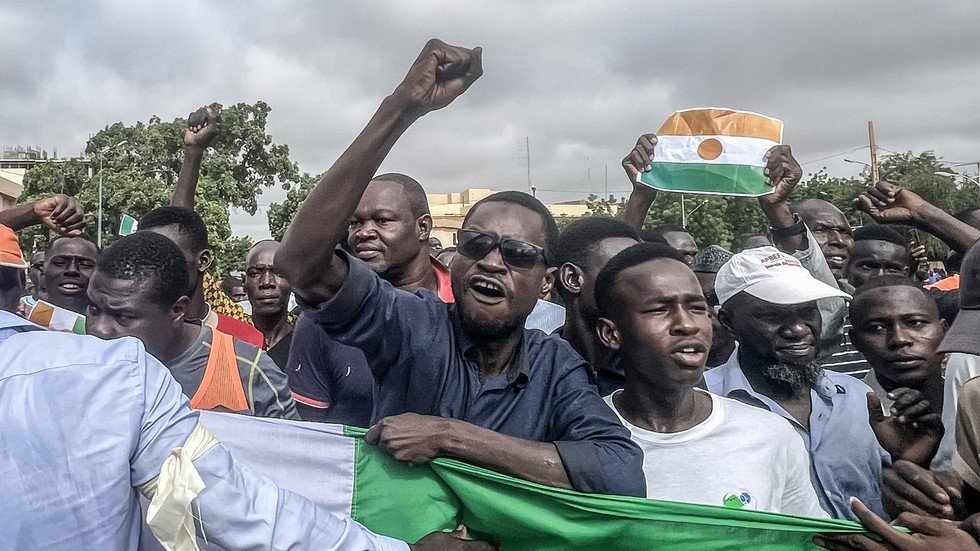
 www.rt.com
www.rt.com
Over 3 million square kilometers of territory and 82 million people living in the ECOWAS countries are under ECOWAS sanctions now. Most of the ECOWAS territories (its total area amounting to 5.2mn sq km) are no longer a full-fledged part of the organization, which is now split into two areas coinciding with the two historical regions that Africa experts traditionally outline in West Africa – namely, Guinea, including the coastal West African territories from Senegal to Cameroon, and West Sudan, part of the Sahara/Sahel region. In fact, ECOWAS is split into two camps. One camp is represented by the four countries that have gone through coups d’etat (Mali in 2020 and 2021; Guinea in 2021; Burkina Faso in 2022), while the opposing camp includes Nigeria, Ghana, Ivory Coast, Senegal and others.
ECOWAS has always been a rather heterogeneous, diverse organization, with its population divided by both religious (Christianity vs Islam) and language (English vs French) affiliations. And also, there are two monetary arrangements within ECOWAS – the WAEMU (West African Economic and Monetary Union) that unites former French colonies in Africa and is also known as the CFA franc zone, and the WAMZ (West African Monetary Zone) that plans to introduce a single currency in ECOWAS – the Eco.
Moreover, there is no unity among the ‘legitimate’ member states of ECOWAS. Nigeria is the economic leader of all Africa and an apparent regional hegemon, which was once the mastermind behind the ECOWAS concept. Its potential and capabilities intimidate other regional actors, which is deftly used by external players. Until recently, France has used its ties to the countries of the region to exert pressure on Nigeria, including at the ECOWAS level. The country’s economic protectionism annoyed the EU and was a major obstacle for a trade agreement between West Africa and the Europeans. That’s what pushed Brussels, willing to leave Nigeria out, to sign separate deals with Ghana and Ivory Coast and use them as entry points to access the regional market of ECOWAS.

How the Niger coup can shake up the balance of power in and around Africa
With the diminishing influence of France, the increasing local hegemony of Nigeria and other interests, several scenarios are possible
Medusa
Well-known member
War in West Africa: ECOWAS Ultimatum Expires on Sunday, May Prompt Military Intervention in Niger – Military Coup Leader Goes to Mali To Ask for Wagner PMC Help

War in West Africa: ECOWAS Ultimatum Expires on Sunday, May Prompt Military Intervention in Niger - Military Coup Leader Goes to Mali To Ask for Wagner PMC Help | The Gateway Pundit | by Paul Serran
This Sunday (August 6th), the ultimatum by the West African regional bloc ECOWAS expires, potentially opening the way for conflict in the region, with military intervention in Niger triggering a proxy war of considerable proportions.
Mike
Mike
Mike
Mike
Fries Foar Frijhiid
Well-known member
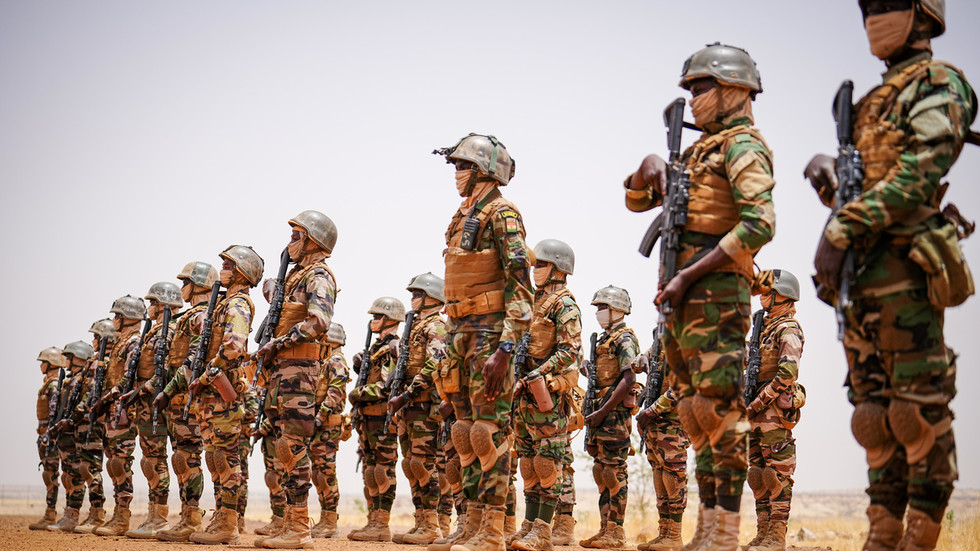
African Union rejects military intervention in Niger – media
The African Union has reportedly opposed a plan by the regional bloc ECOWAS to use force against the Nigerien coup leaders
Fries Foar Frijhiid
Well-known member
Fries Foar Frijhiid
Well-known member
Nieuws omtrent Niger:
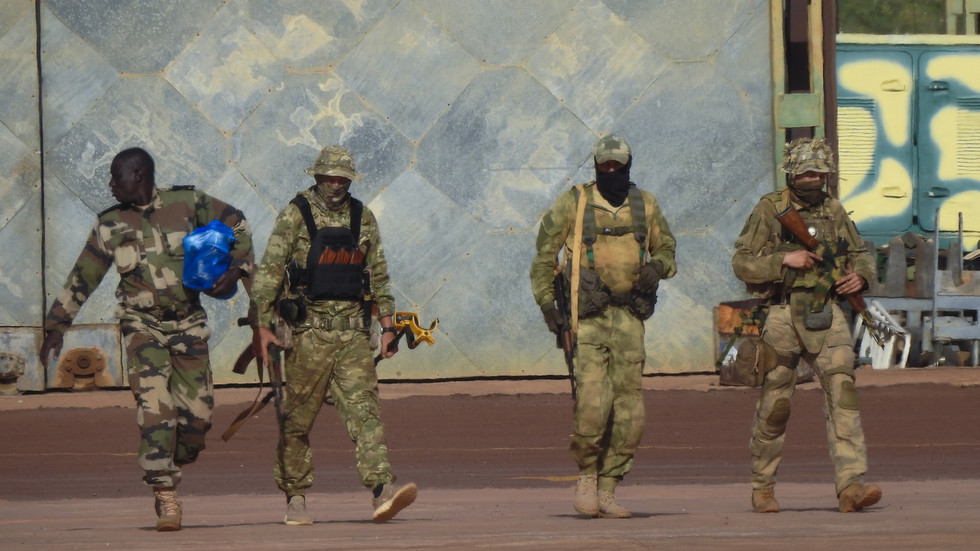
 www.rt.com
www.rt.com
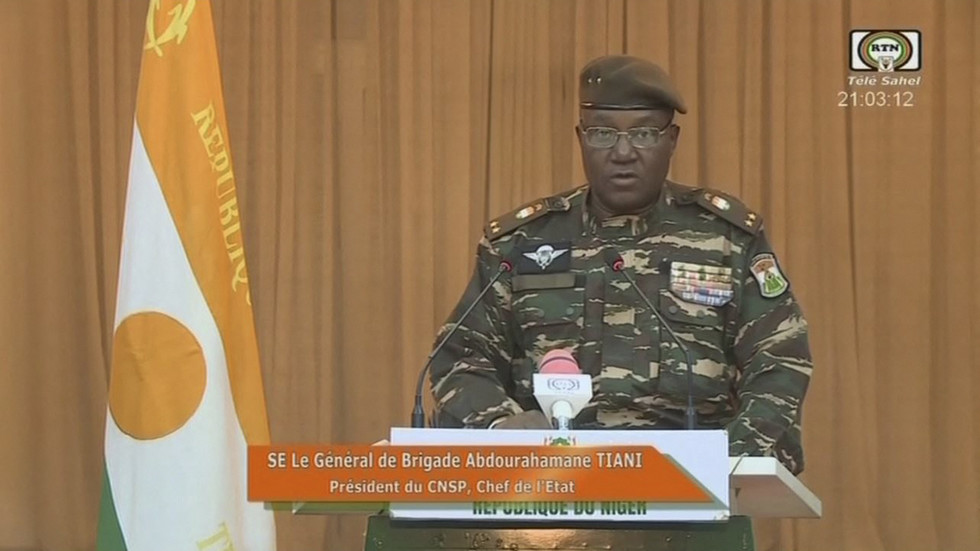
 www.rt.com
www.rt.com
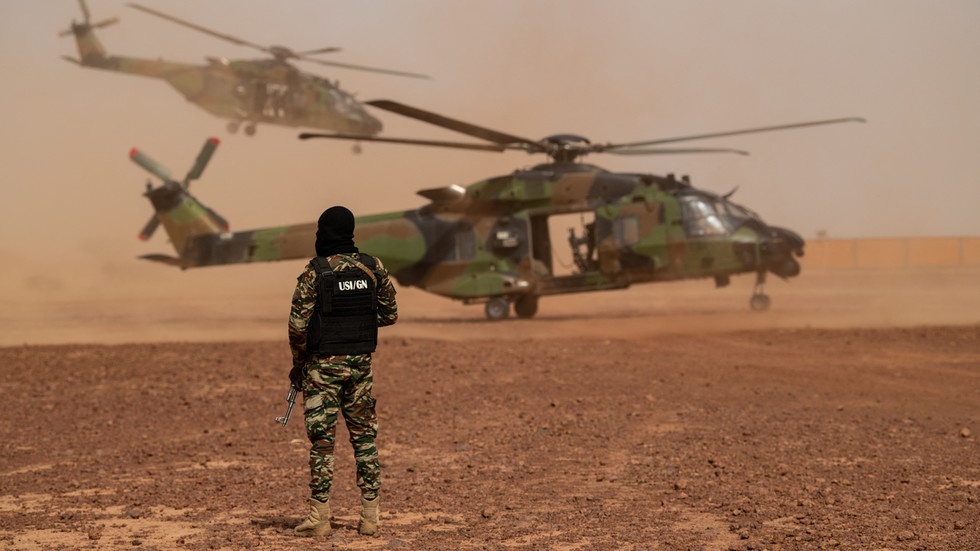
 www.rt.com
www.rt.com
Niger’s coup leaders have “no intention” of working with Russian defense contractor Wagner Group PMC, their top civilian official told the New York Times on Friday.
The Wagner Group did not comment on whether the alleged meeting took place, although the PMC’s chief, Yevgeny Prigozhin, has spoken favorably of the coup, calling it a “justified rebellion of the people against Western exploitation.”
France has backed ECOWAS’ efforts to force the coup leaders out of power, although Paris has not clarified whether it supports a diplomatic or a military solution. Mali and Burkina Faso, both of which came under the control of military governments who expelled French troops last year, have vowed to come to Niger’s aid in the event of an invasion.

Niger won’t work with Wagner Group – PM
The Russian PMC is reportedly operating in neighboring Mali and Burkina Faso
In a televised address on Saturday evening, General Abdourahmane Tchiani – who deposed President Mohamed Bazoum in late July – said his government would decide on the principles for a transition within a month. The process itself is expected to take “no longer than three years,” Tchiani said.
He also stressed that while neither his government, nor the Nigerien people, want war and “remain open to dialogue,” the country is ready to defend itself against any external “aggression.” Tchiani predicted that such an intervention “would not be the walk in the park that some believe.
Niger’s mines are an important source of uranium for France’s nuclear reactors. Paris has 1,500 soldiers stationed in the country, which the new military rulers want gone. The US has 1,000 military personnel in the country, also declared unwelcome.

Niger’s new military government outlines transitional period
Niger’s new military government has promised to eventually return the West African nation to civilian rule
Algeria turned down a request from France to fly over its airspace for a military operation in Niger, where President Mohamed Bazoum was ousted in a military coup in late July, several media reports suggest on Tuesday, citing the North-African nation’s state radio.
“Faced with Algerian refusal, France turned to Morocco, asking for authorization to pass its military planes through its airspace,” state radio said, according to the Nova News.

Algeria rejects French request to use airspace for Niger operation – media
The French military has denied claims it sought clearance to fly over Algerian airspace for an operation in Niger
Fries Foar Frijhiid
Well-known member
Na een voorstel van Lula voor een Zuid-Amerikaanse euro denken de Afrikanen ook aan een euro-equivalent:
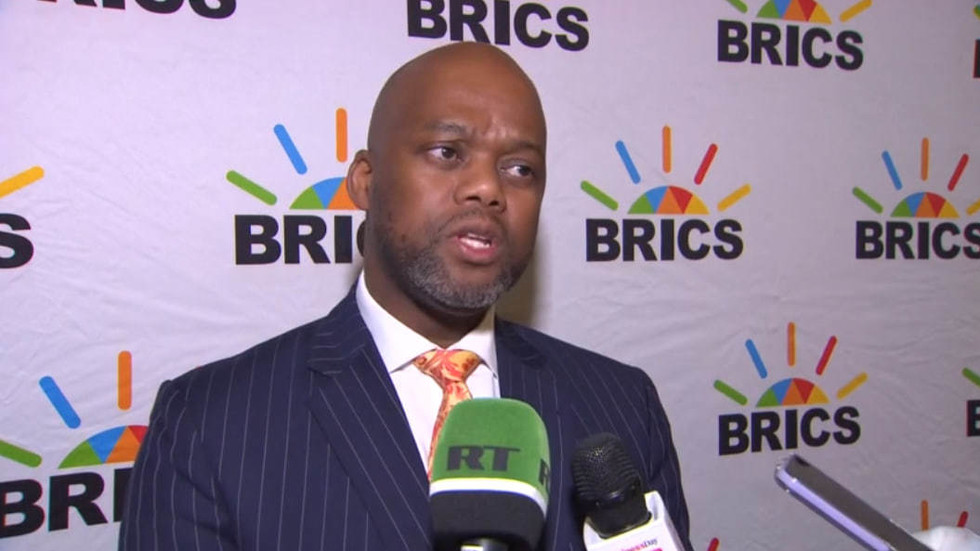
 www.rt.com
www.rt.com
Overigens hebben een aantal Afrikaanse landen al een gedeelde munt: de CFA-frank.
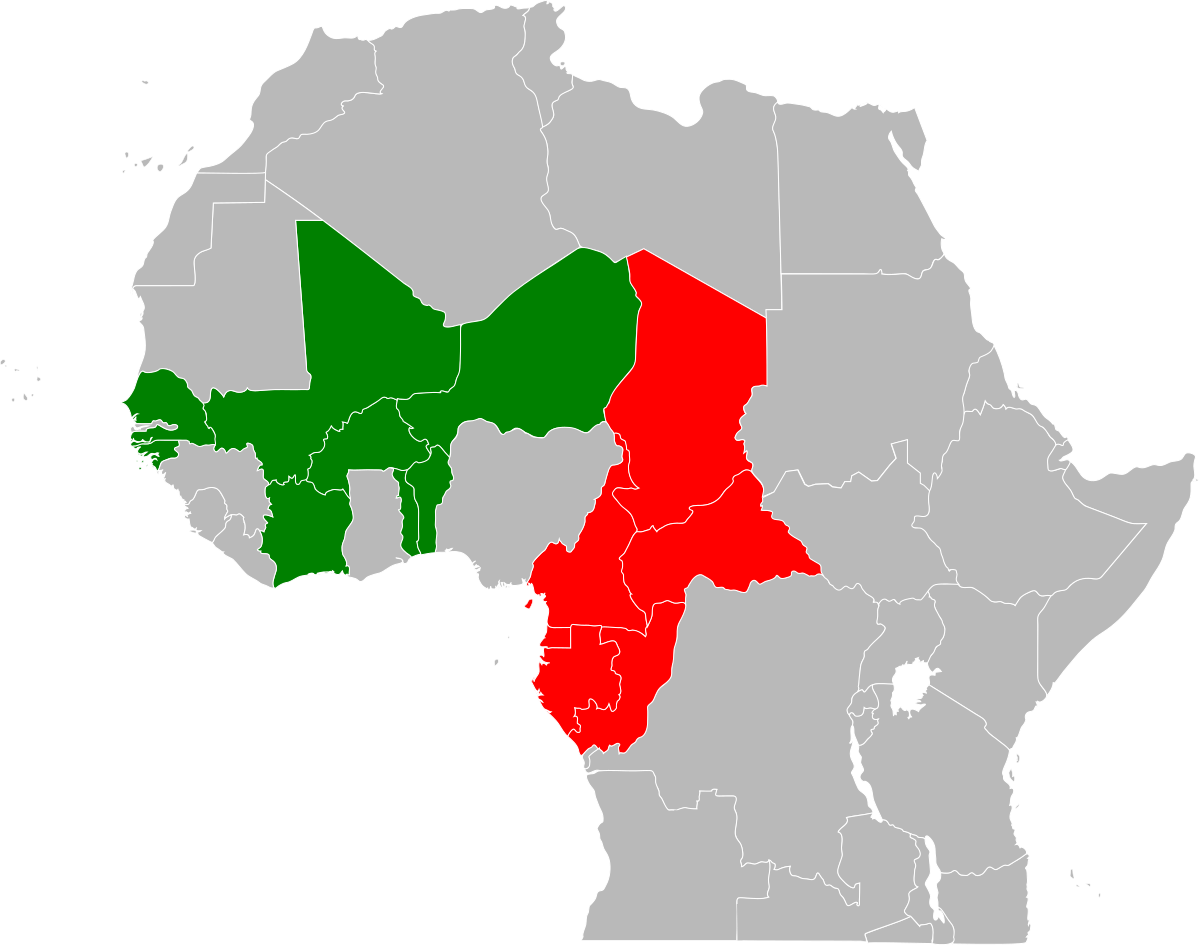
 en.wikipedia.org
en.wikipedia.org
Mene stated that the members of AfCFTA and the African Union have timelines within which they intend to introduce a common African currency.

African free-trade alliance considering common currency
Africa is seeking investment from BRICS countries to develop trade, AfCFTA Secretary General Wamkele Mene says
Overigens hebben een aantal Afrikaanse landen al een gedeelde munt: de CFA-frank.

CFA franc - Wikipedia
Medusa
Well-known member
Het leger van Gabon zegt woensdagochtend de macht in het West-Afrikaanse land te hebben overgenomen. Ali Bongo heeft afgelopen zaterdag de presidentsverkiezing gewonnen, maar de staatsgreep heeft snel een einde aan zijn presidentschap gemaakt. Hij is onder huisarrest geplaatst.
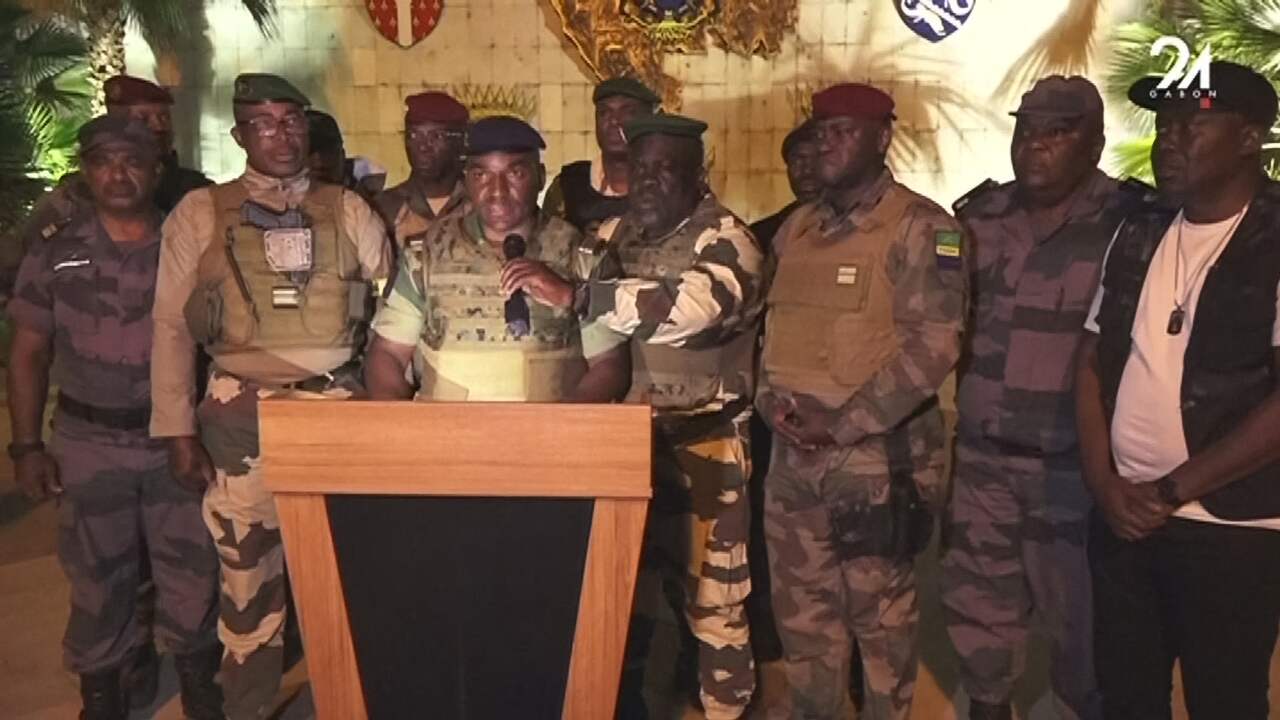
 www.nu.nl
www.nu.nl

Gabonees leger zegt coup te hebben gepleegd en zet net verkozen president af
Het leger van Gabon zegt woensdagochtend de macht in het West-Afrikaanse land te hebben overgenomen. Ali Bongo heeft afgelopen zaterdag de presidentsverkiezing gewonnen, maar de staatsgreep heeft snel een einde aan zijn presidentschap gemaakt. Hij is onder huisarrest geplaatst.
Medusa
Well-known member
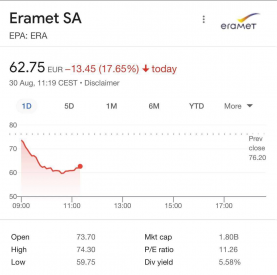
Volgens de internationale media, heeft het Franse mijnbouwbedrijf Eramet in één nacht, na de militaire staatsgreep, zijn activiteiten in Gabon stopgezet.
Eramet exploiteert 17 mijnbouw- en industriële locaties in 15 landen.
Eramet heeft de grootste nikkelmijn ter wereld (Indonesië)
Blackrock bezit meer dan 1% van de aandelen in Eramet.
De aandelen van Eramet zijn nu met ruim 17% gedaald.
* Note : Voormalig president van Gabon Omar Bongo had 70 bankrekeningen, 39 appartementen, 2 Ferrari's, 6 Mercedes-Benz, 3 Porsche en Bugatti in Frankrijk.
Gabon bezit ook uranium-, olie- en gasvoorraden.
Medusa
Well-known member
A Game of Ultimatums: Niger Demands French Troops Leave Country by September 3 – Paris Has Already Refused To Withdraw Its Ambassador, as the European Union Weighs a Response

A Game of Ultimatums: Niger Demands French Troops Leave Country by September 3 - Paris Has Already Refused To Withdraw Its Ambassador, as the European Union Weighs a Response | The Gateway Pundit | by Paul Serran
As the situation develops in post-coup Niger, a back and forth game of ‘ultimatums’ is taking place, and mostly the demands are getting ignored by the opposing parties.
Fries Foar Frijhiid
Well-known member
Burkina Faso’s ministerial council approved a bill on Wednesday authorizing the government to send a military contingent to defend Niger, in the event that the coup leaders in Niamey come under attack.
Last week, the Sahel nation’s new authorities signed an order to permit the defense and security forces of Burkina Faso and Mali to intervene on its territory in the event of an attack.
The foreign ministries of the three former French colonies also announced the establishment of a consultation framework and a joint secretariat to coordinate responses to security challenges.
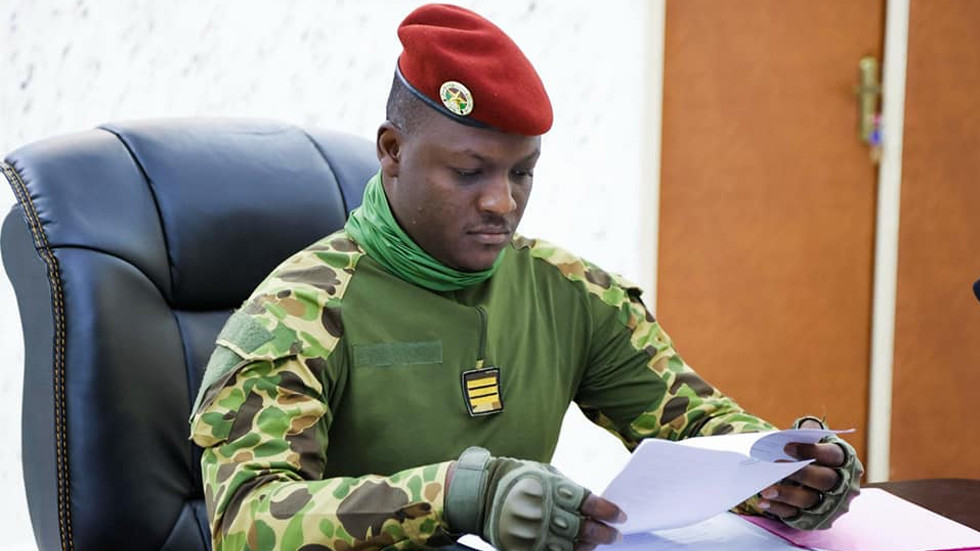
 www.rt.com
www.rt.com
Last week, the Sahel nation’s new authorities signed an order to permit the defense and security forces of Burkina Faso and Mali to intervene on its territory in the event of an attack.
The foreign ministries of the three former French colonies also announced the establishment of a consultation framework and a joint secretariat to coordinate responses to security challenges.

African nation passes bill to send troops to Niger
The defense minister of Burkina Faso said any threats to Niamey’s security would have consequences for his own country
Fries Foar Frijhiid
Well-known member
Creëer nog maar meer anti-VS sentiment:
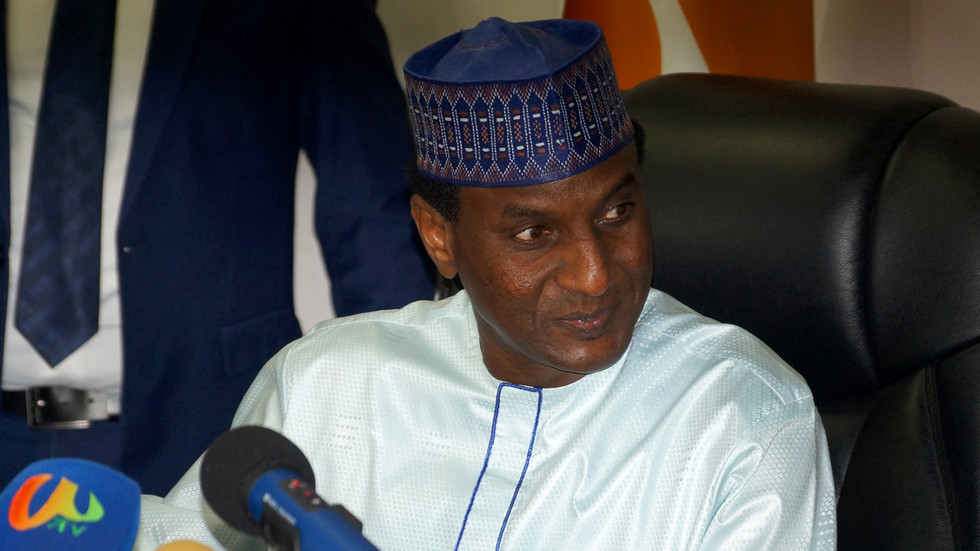
 www.rt.com
www.rt.com

US considering assassination of Niger coup leaders – Moscow
Washington may assassinate the leaders of the Nigerien military government, Russia’s Foreign Intelligence Service believes
Forum statistieken



